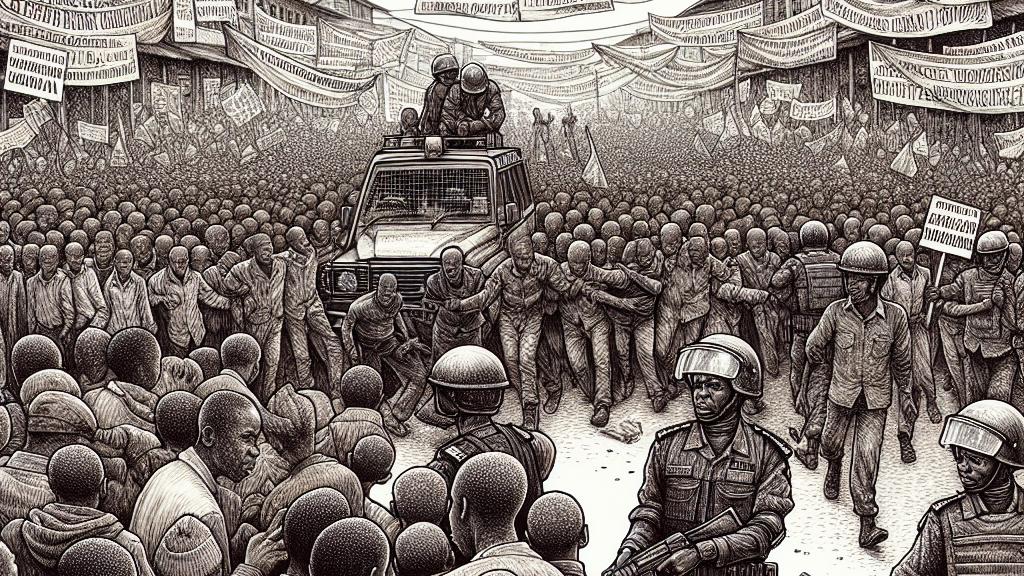Mass Arrests in Tanzania: A Dark Echo of the Past
Overview
- Tanzanian authorities arrested prominent opposition leaders and hundreds of youth on the eve of a rally.
- The crackdown recalls the oppressive tactics used during former President Magufuli's regime, sparking fears of increasing authoritarianism.
- Human rights organizations demand immediate action to release detainees and uphold citizens' democratic rights.

Background of the Arrests
In a troubling development for democracy in Tanzania, police conducted mass arrests on August 11, 2024, targeting opposition leaders and hundreds of youth supporters in Mbeya. This crackdown coincided with a planned rally to commemorate International Youth Day, designed to empower young citizens under the slogan 'Take charge of your future.' Despite President Samia Suluhu Hassan's earlier promise to foster political openness by lifting the ban on opposition gatherings, the police's claim of potential violence led to swift detentions. Observers were quick to express concern about whether the government is retreating into authoritarian practices reminiscent of the Magufuli era, known for its harsh restrictions on freedom of assembly and expression.
Historical Context and Current Political Climate
The recent arrests come at a time of heightened political tension in Tanzania as the nation prepares for presidential and parliamentary elections scheduled for late 2025. This situation mirrors the repression seen during John Magufuli's administration, characterized by targeted crackdowns on dissenting voices, particularly those from the Chadema party. Leaders like Freeman Mbowe and Tundu Lissu have already faced significant persecution, including arbitrary arrests and severe charges that many believe are politically motivated. The actions taken by police point to a concerning trend where the government appears determined to silence opposition, raising alarms about the future of democracy in Tanzania and the integrity of upcoming elections.
Calls for Human Rights and Democratic Principles
In response to the ongoing crisis, human rights advocates, including Amnesty International, have called for the immediate release of all unjustly detained opposition members and youth, highlighting the need to respect fundamental freedoms such as expression and assembly. Reports have surfaced of police brutality during these arrests, further complicating the already fragile state of civil liberties within the country. Activists are emphasizing the urgent need for the Tanzanian government to commit to human rights and democratic principles, urging leaders to prioritize accountability and public trust. As the situation unfolds, the collective voice for reform and respect for rights becomes increasingly critical, as Tanzania stands at a crossroads—a chance to either solidify its democratic trajectory or fall back into the shadows of repression.

Loading...